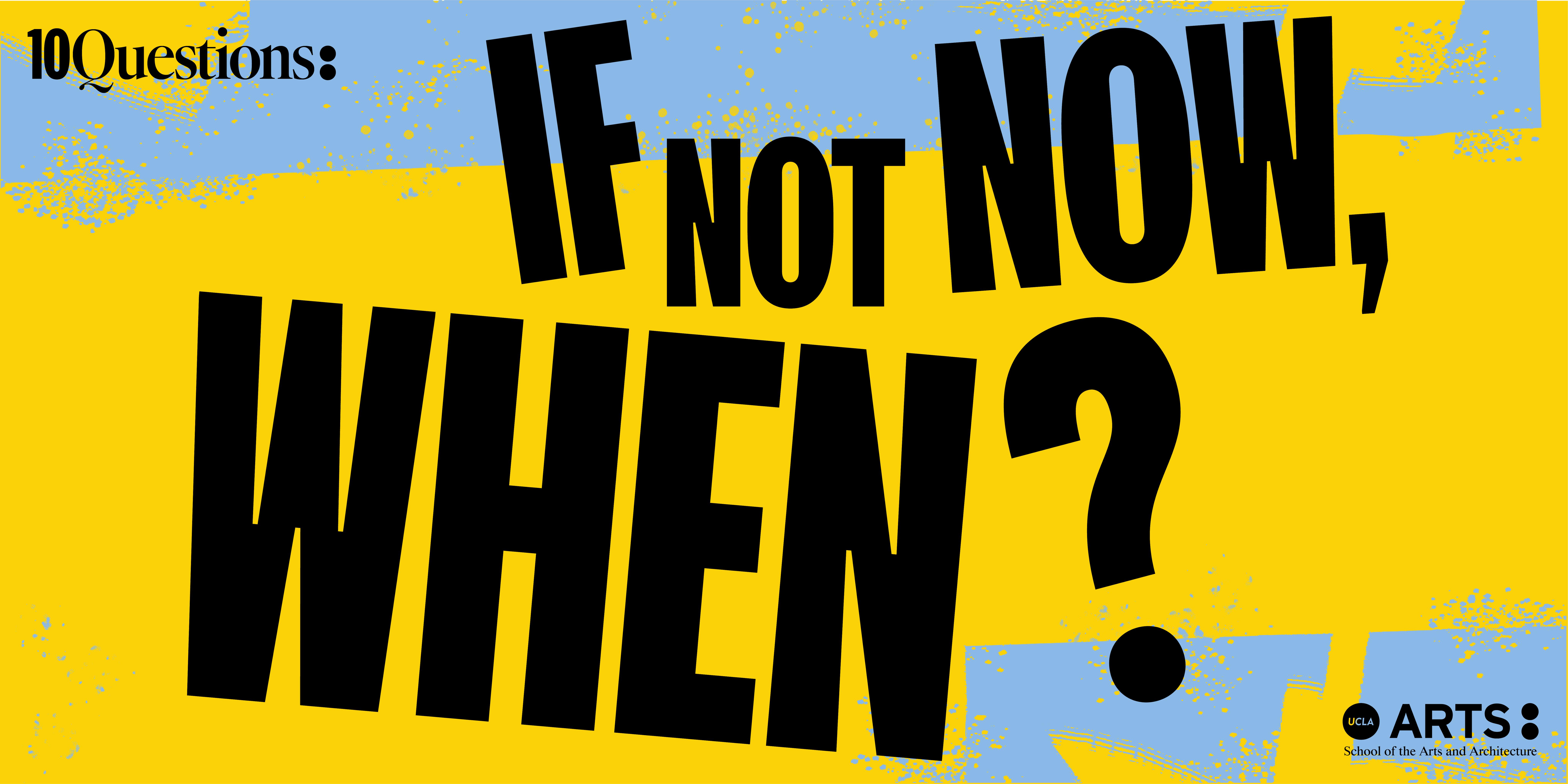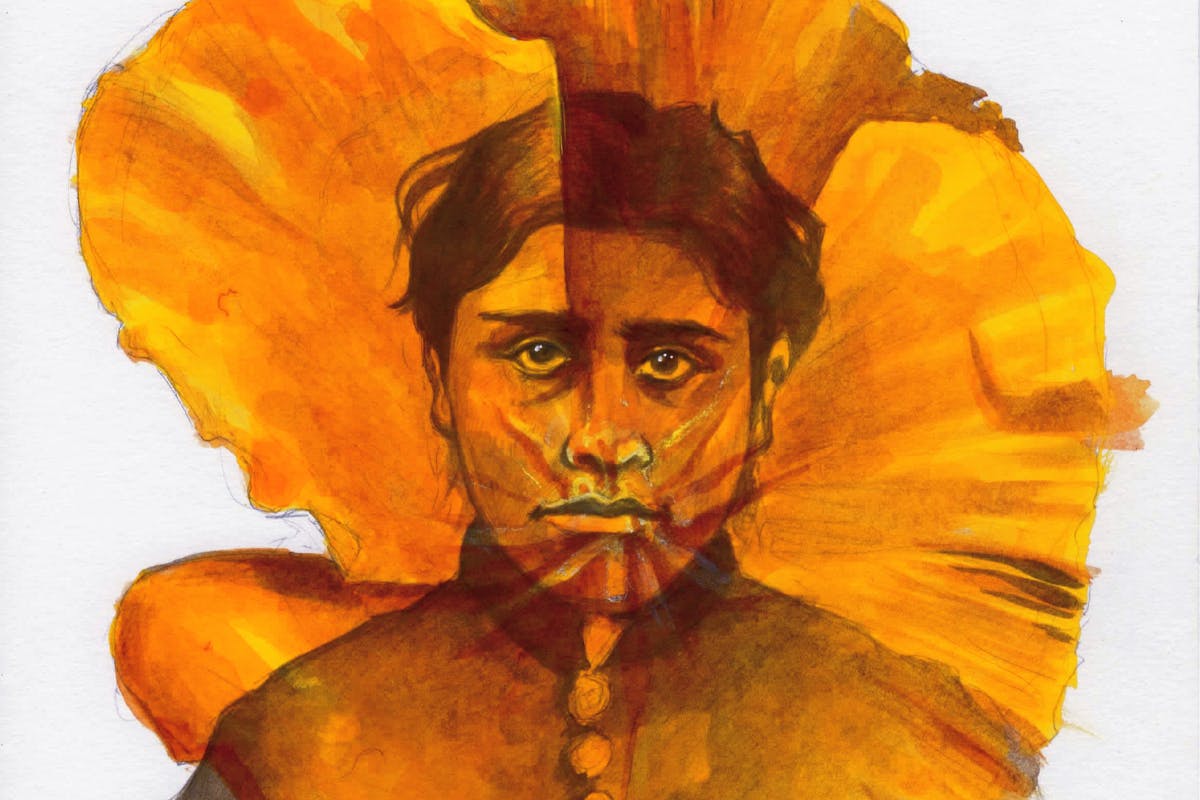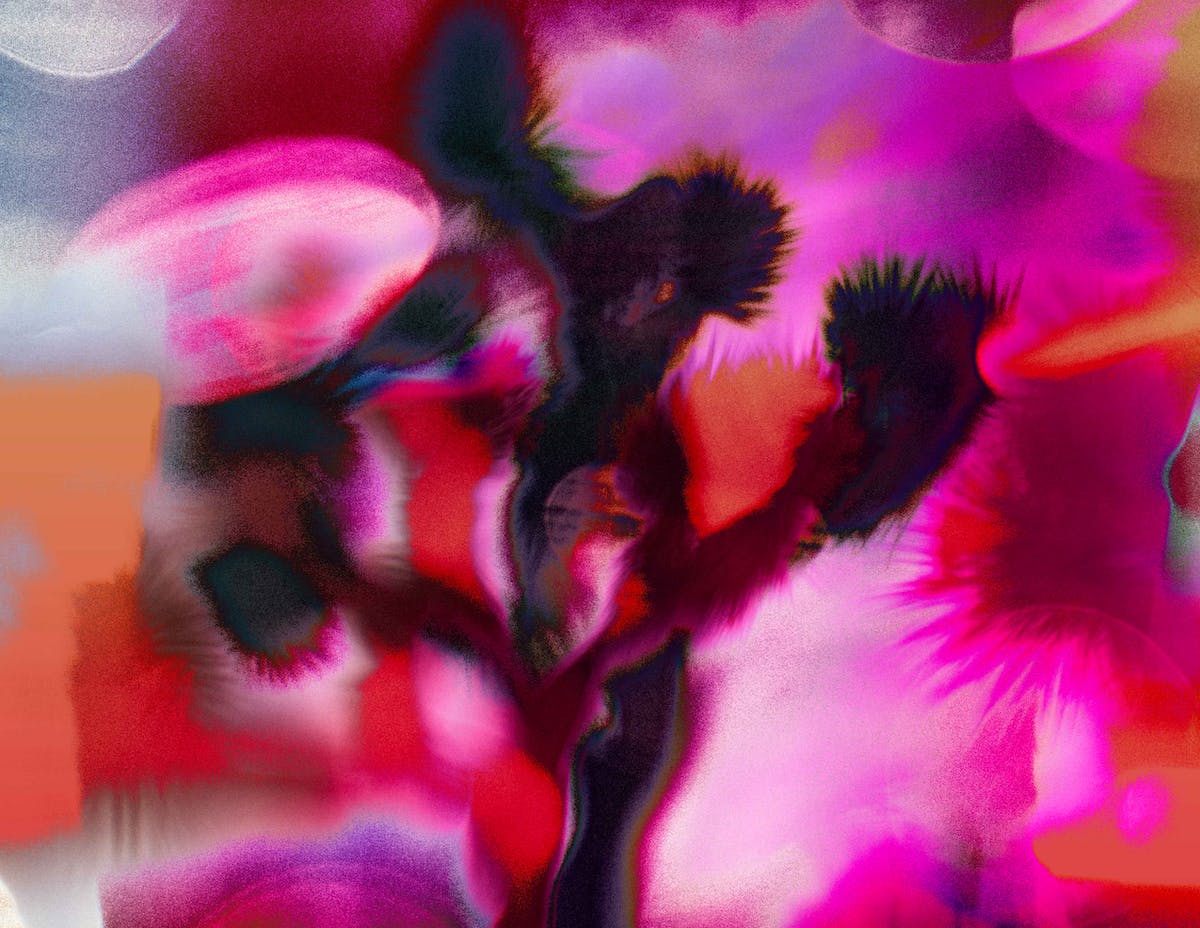With the world at a crossroads, UCLA Arts’ ‘10 Questions’ series returns to ask, ‘If not now, when?’

“10 Questions,” a cornerstone of UCLA’s annual calendar, is returning for its fourth iteration in an effort to consider the actions we can take to address the kinds of personal, familial, communal and global healing that is called for in this moment. The interdisciplinary public program of conversation and reflection will bring together some of the most compelling thinkers from UCLA and beyond.
Beginning Sept. 27 and continuing every Monday evening for 10 weeks, UCLA faculty members from disciplines spanning music, dance, theater, psychology, African American studies, gender studies, health policy and environmental law will join Victoria Marks, professor of world arts and cultures/dance, to explore fundamental questions, such as: How do we remember? How do we build? How do we love?
Last year’s series, “10 Questions: Reckoning,” grappled with the profound inequities of our time, set against the context of a global pandemic, a presidential election, a racial justice movement and the ongoing threat of climate change. The fourth edition of the program, titled “10 Questions: If not now, when?” will bring students, faculty, alumni and community members together to reflect and consider how best to chart a path forward.
Simultaneously an upper division undergraduate course and public program, “10 Questions: If not now, when?” invites 30 leading artists, scholars, researchers and thinkers from across UCLA to explore and probe the generative possibilities and opportunities of these extraordinary times.
“We are beginning to return to our schools, our places of work, to our communities, but the world has profoundly changed,” said Brett Steele, dean of the UCLA School of the Arts and Architecture. “We cannot aspire to return to a critically flawed past. Instead, we must commit to building anew. ‘10 Questions’ is an essential forum for imagining this new and better world.”
Participants represent a wide range of disciplines and practices, and include three MacArthur “genius grant” recipients, a Grammy Award winner, New York Times bestselling authors, elected officials, artists, an emergency room doctor, and scholars and activists on the frontlines of climate change, racial and social justice, human rights, public health and other fields.
In light of the continuing pandemic and based on last year’s success and increased access, “10 Questions” will again be held remotely as a Zoom webinar, accommodating approximately 60 upper division undergraduate students and an unlimited public audience. Taking place every Monday evening from 7 to 8:50 p.m. Pacific time across 10 weeks in the 2021 fall quarter, each program will be moderated by Marks and organized around the following questions:
Sep. 27: Who are we?
Lauren Lee McCarthy, artist and associate professor of design media arts at UCLA; Adriana Galván, behavioral neuroscientist and professor of psychology at UCLA; Isaac Bryan, member of the California State Assembly and former director of public policy at the UCLA Ralph J. Bunche Center for African American Studies
Oct. 4: How do we begin?
Sylvan Oswald, theater artist, head of playwriting and associate professor of theater at the UCLA School of Theater, Film and Television; Christina Palmer, genetic counselor, professor-in-residence at the UCLA Center for Neurobehavioral Genetics in the department of psychiatry and biobehavioral sciences; Ping Ho, integrative health expert and founder and director of UCLArts & Healing
Oct. 11: How do we connect?
Luis Alfaro, playwright and associate artistic director of Center Theatre Group; Mary Osako, vice chancellor for strategic communications at UCLA; Naomi Eisenberger, social psychologist and professor of psychology
Oct. 18: How do we remember?
Anurima Banerji, dance and performance theorist, associate professor and current graduate vice chair of world arts and cultures/dance; Angela Riley, professor of law; additional panelist TBA
Oct. 25: How do we heal?
Diane White-Clayton, composer and conductor, lecturer in ethnomusicology; David Shorter, cultural scholar and professor of world arts and cultures/dance; Vickie Mays, professor of psychology and health services
Nov. 1: How do we fail?
Anna Sew Hoy, artist, assistant professor of art and ceramics area head; Safiya Noble, associate professor of gender studies and African American studies; Michael Eselun, oncology chaplain at the Simms/Mann – UCLA Center for Integrative Oncology
Nov. 8: How do we change?
Jackie Lopez, dancer and choreographer, lecturer of world arts and cultures/dance; D’Artagnan Scorza, founder and executive director of the Social Justice Learning Institute; V. Kelly Turner, assistant professor of urban planning and geography
Nov. 15: How do we build?
Jeffrey Inaba, architect and adjunct professor of architecture; Adam Bradley, literary critic, professor of English and the founding director of the Laboratory for Race and Popular Culture (RAP Lab) at UCLA; Eric Hoek, professor of civil and environmental engineering
Nov. 22: How do we sustain?
Arturo O’Farrill, jazz pianist, composer, and professor of global jazz studies and music; Cara Horowitz, co-executive director of the Emmett Institute on Climate Change and the Environment at UCLA School of Law; Drea Letamendi, psychologist, interim director of the UCLA RISE Center and associate director of mental health training, intervention, and response for residential life at UCLA
Nov. 29: How do we love?
Peter Sellars, theater and opera director, and distinguished professor of world arts and cultures/dance; Ahilan Arulanantham, human rights lawyer, and faculty co-director of the UCLA Center for Immigration Law and Policy; Dr. Thanh Neville, pulmonologist and assistant professor at the David Geffen School of Medicine at UCLA
With this year’s “10 Questions,” the UCLA School of the Arts and Architecture is working to build upon the foundation it has established these last three years, Marks said. Bringing together three experts with such diverse backgrounds creates vibrant conversations that not only raise awareness of the profoundly interdisciplinary nature of knowledge, but that — in seeing differently, together — help us cultivate greater empathy, tolerance and community and prepare us to tackle the essential questions of our time.
“This innovative program encapsulates the best of what a university can offer: a free exchange of ideas, drawing knowledge and expertise from a variety of disciplines and subjects, in order to make sense of our changing world and our role within it,” Marks said. “With the arts at the forefront, we will grapple with uncertainty in search of a deeper understanding of and appreciation for our complicated, nuanced reality.”
This year, UCLA Arts will once again extend these conversations deeper into the community through a partnership with its Visual and Performing Arts Education program. As part of the “10 Questions” series, VAPAE will collaborate with a range of participants, including middle and high school students from public schools across the city as well as cohorts of local senior citizens and families. Each group will generate their own classroom and program conversations and create artwork in response to select questions. They will then have the opportunity to share their artwork as part of the public program.
“By extending this conversation into our communities, UCLA is putting inclusivity into practice. These younger, and in this case elder, generations of artists have much to teach us. Their perspectives and creativity are paramount as we make sense of the world we are living in and seek ways to address the challenges ahead,” said Kevin Kane, director of VAPAE, who was a panelist in 2019’s “10 Questions” discussion “What is community?”
UCLA Arts will also launch season five of the podcast “Works In Progress” with a focus on the “10 Questions” initiative, speaking with panelists to learn more about their perspectives and to deepen the conversation around these essential questions.

